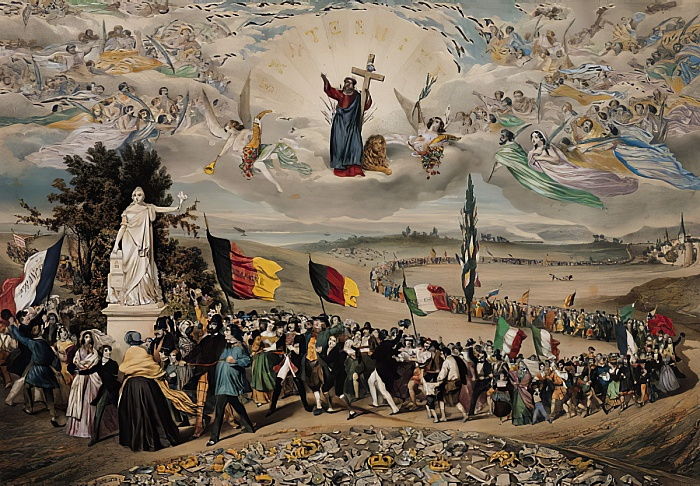The 19th century in Europe was a time of profound change and rising nationalism. Imagine living in a world where people began to see themselves not just as subjects of a king or an emperor, but as part of something bigger, something shared—a nation. This feeling, known as nationalism, was the spark that lit the fires of many movements and revolutions across Europe.
Nationalism is the belief that people who share a common language, culture, and history should have their own nation. It’s about belonging to a community that is more than just a collection of people; it’s about being united by shared traditions, beliefs, and values. This idea became especially powerful in Europe during the 19th century, as people started to identify more with their nation than with their local region or ruling dynasty.
So, what caused this rise of nationalism? Several key factors played a role. First, the French Revolution at the end of the 18th century was a major influence. The revolutionaries in France overthrew their king and declared a republic based on the principles of liberty, equality, and fraternity. This inspired people across Europe to think about their own identities and how they were governed. The idea that people could choose their own government and be free from oppressive rulers resonated widely.
Then came Napoleon Bonaparte, who, after the revolution, expanded French territory across much of Europe. As Napoleon’s armies marched through Europe, they spread the revolutionary ideals, but they also sparked resistance. People didn’t want to be ruled by the French; they wanted to govern themselves. This resistance fueled nationalist feelings. Countries like Spain and Germany, which were not yet united nations, began to see themselves as distinct entities that deserved independence.
Moreover, the Industrial Revolution played a significant part. As Europe became more industrialized, communication and transportation improved dramatically. Railways, newspapers, and telegraphs connected people in ways that had never been possible before. As a result, people became more aware of the wider world and their place within it. They began to realize that they shared common languages and cultures with others, and this realization helped to create a sense of national identity.
Across Europe, this rising nationalism led to many movements for independence and unification. In Italy, different states and kingdoms were united into a single country, largely thanks to the efforts of leaders like Giuseppe Garibaldi and Count Camillo di Cavour. In Germany, various independent states and territories were brought together by Otto von Bismarck, forming a powerful German Empire. In both cases, the desire for a unified nation was stronger than the loyalty to local rulers or foreign empires.
But nationalism wasn’t just about unification; it was also about gaining independence from foreign rule. In Greece, for example, the people fought a long and bloody war to gain independence from the Ottoman Empire, inspired by a strong sense of their ancient heritage and identity. Similarly, in Eastern Europe, nations like Hungary and Poland sought to break free from the control of larger empires.
The rise of nationalism in Europe in the 19th century was a powerful force that reshaped the continent. It brought about the unification of some countries and the independence of others, and it helped to create the modern map of Europe as we know it today. But nationalism also had a darker side; it could lead to conflict and division, as different groups struggled for power and recognition. As the 19th century came to a close, the strong feelings of national pride that had once been a source of unity began to contribute to the tensions that eventually led to World War I. Nationalism, in its many forms, had set the stage for both great achievements and great challenges in Europe’s future.

